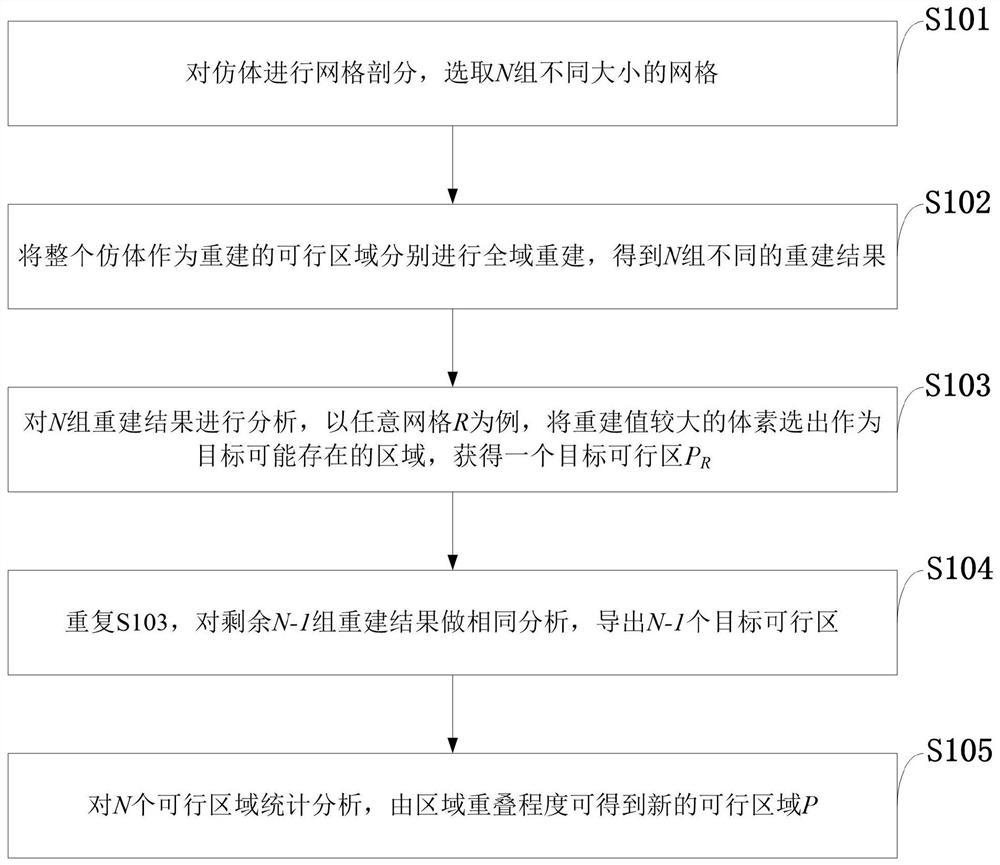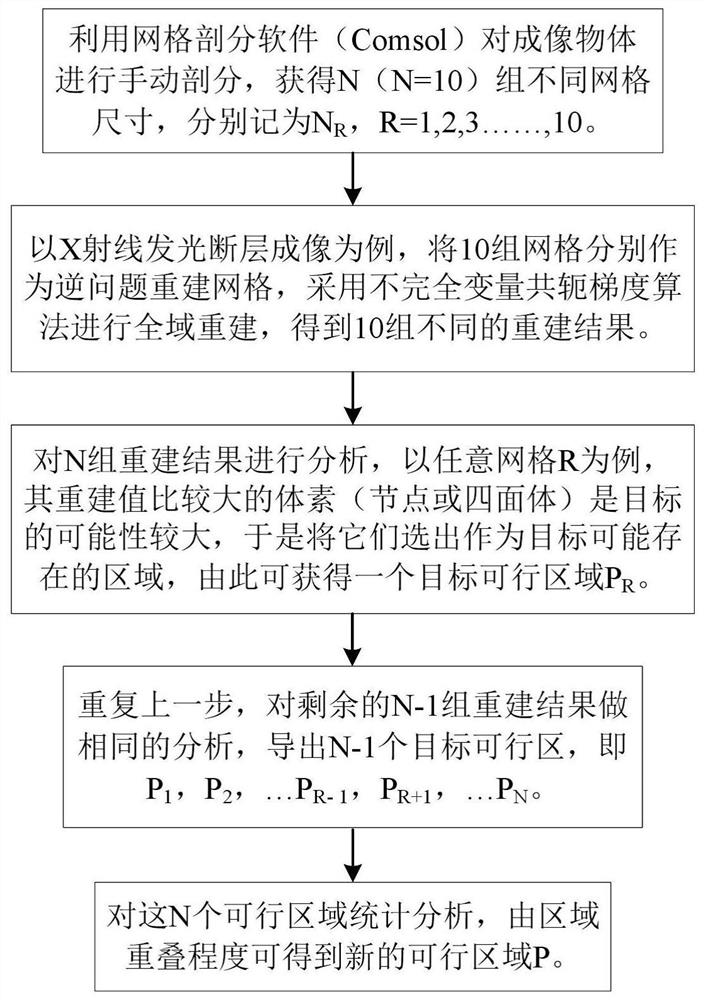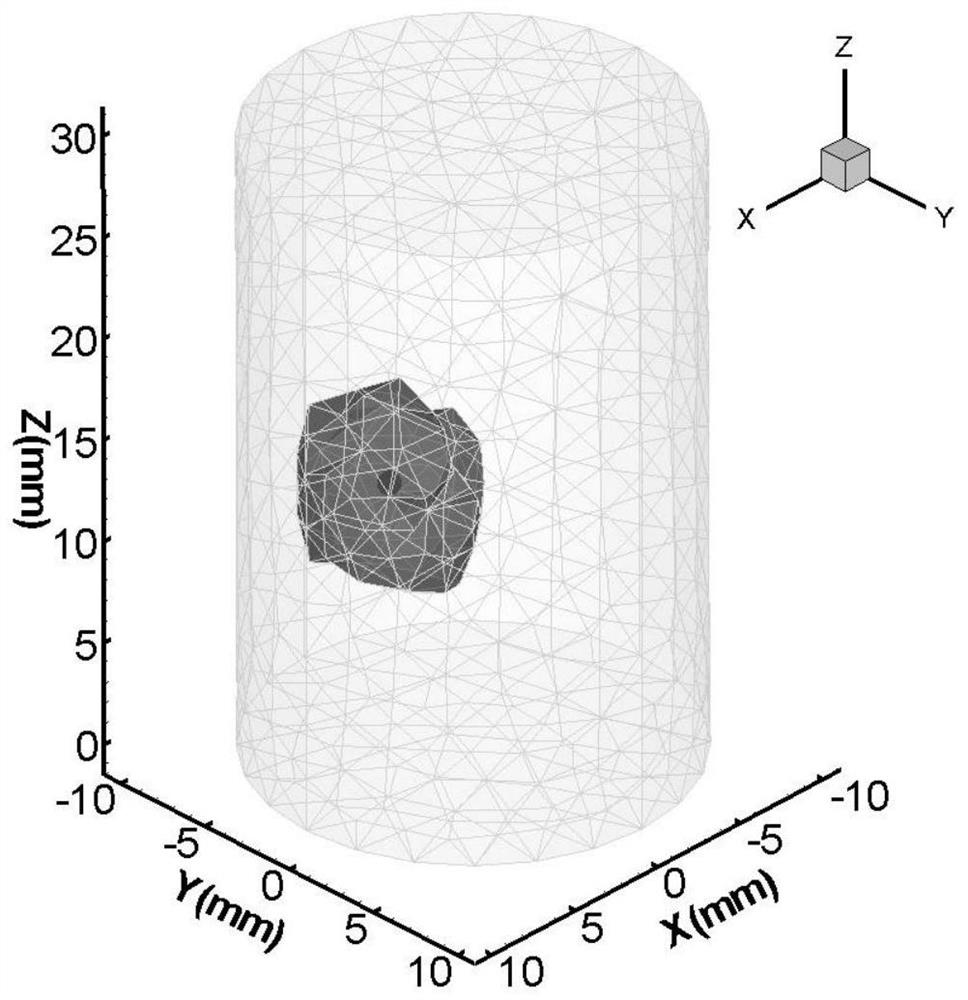A method for extracting target feasible area in X-ray luminescence tomography
A technology of luminescence tomography and extraction method, which is applied in the direction of radiological diagnostic equipment, radiological diagnostic technology, computerized tomography scanner, etc., can solve the problems of large and limited number of internal points in the solution area, and achieve alleviating pathological, Improve reconstruction quality and improve the effect of reconstruction results
- Summary
- Abstract
- Description
- Claims
- Application Information
AI Technical Summary
Problems solved by technology
Method used
Image
Examples
Embodiment Construction
[0041]In order to make the object, technical solution and advantages of the present invention more clear, the present invention will be further described in detail below in conjunction with the examples. It should be understood that the specific embodiments described here are only used to explain the present invention, not to limit the present invention.
[0042] The application principle of the present invention will be described in detail below in conjunction with the accompanying drawings.
[0043] Such as figure 1 As shown, the method for extracting the target feasible region of X-ray luminescence tomography provided by the embodiment of the present invention includes the following steps:
[0044] S101: Carry out grid division for the phantom, and select N groups of grids of different sizes;
[0045] S102: Using the entire phantom as a feasible area for reconstruction, perform global reconstruction respectively, and obtain N groups of different reconstruction results;
...
PUM
 Login to View More
Login to View More Abstract
Description
Claims
Application Information
 Login to View More
Login to View More - R&D Engineer
- R&D Manager
- IP Professional
- Industry Leading Data Capabilities
- Powerful AI technology
- Patent DNA Extraction
Browse by: Latest US Patents, China's latest patents, Technical Efficacy Thesaurus, Application Domain, Technology Topic, Popular Technical Reports.
© 2024 PatSnap. All rights reserved.Legal|Privacy policy|Modern Slavery Act Transparency Statement|Sitemap|About US| Contact US: help@patsnap.com










